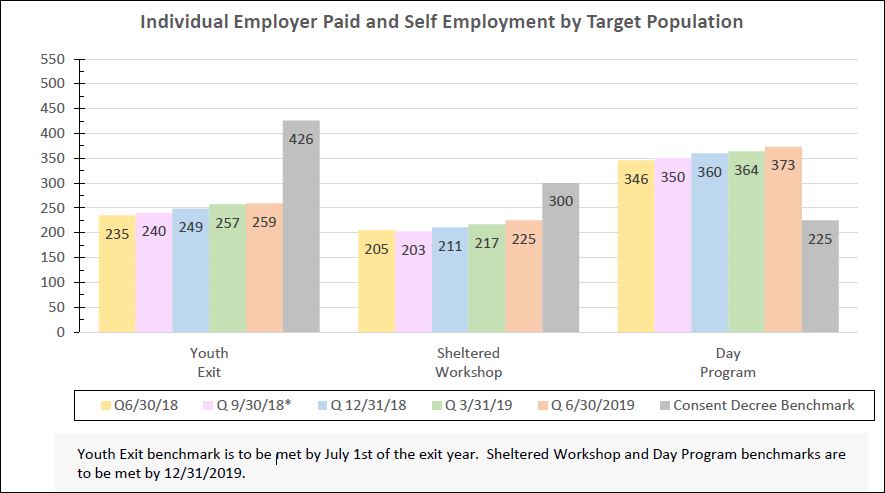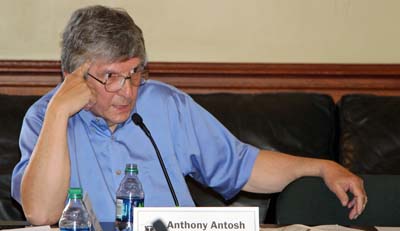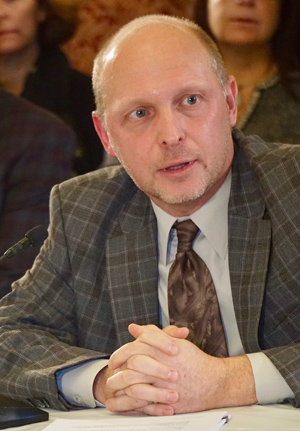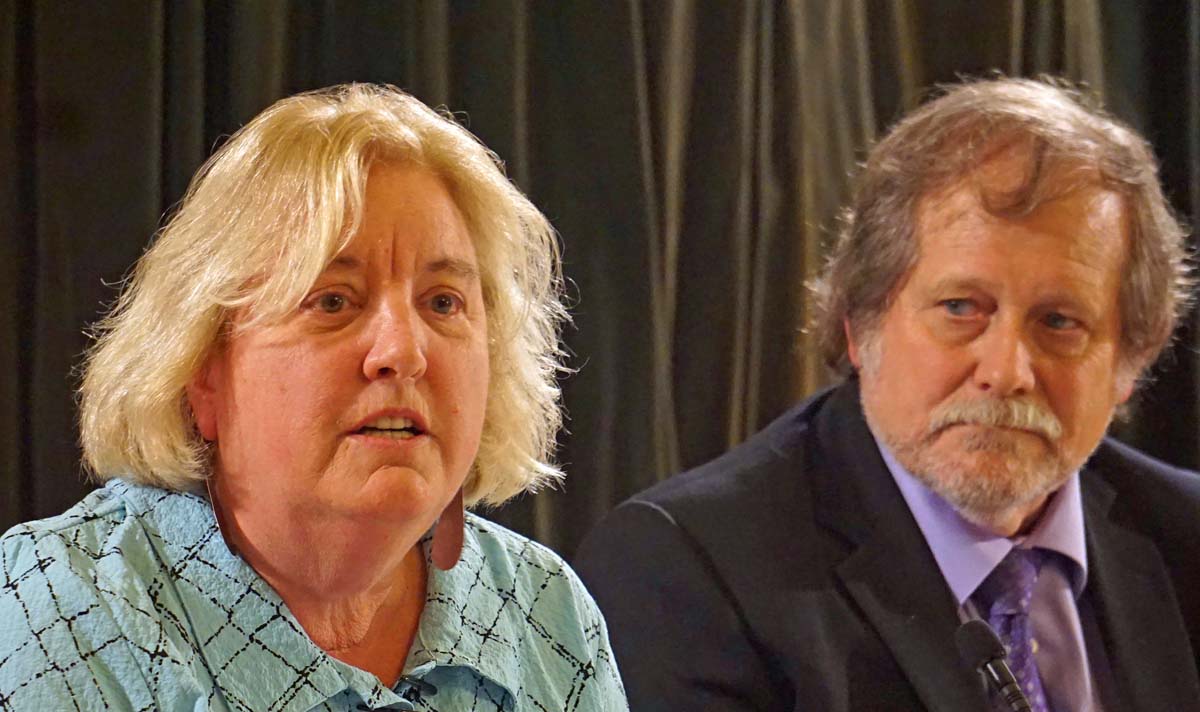DOJ Urges End To City’s Obligations In Landmark Providence "Sheltered Workshop" Case
/By Gina Macris
The U.S. District Court will hear a request by the City of Providence and the U.S. Department of Justice for early termination of a civil rights agreement affecting intellectually challenged students at Mount Pleasant High School who were once trained only to perform repetitive tasks in a sheltered workshop.
The hearing was scheduled for Sept. 26 after the DOJ formally signaled its support for the city’s request, saying the city and its school department have transformed services for students in keeping with the Integration Mandate of the Americans With Disabilities Act.
“Students are now integrated with their classmates and receive services to prepare them for integrated work in careers that match their interests and abilities,” said lawyers for the DOJ.
In accordance with the agreement, “the City will ensure that these changes are lasting,” the DOJ said in written arguments urging Judge John J. McConnell, Jr. to dismiss the case against the city.
The DOJ praised the city’s “rapid implementation” and “consistent adherence” to the provisions of the agreement, saying it has resulted in “substantial compliance” a year ahead of schedule. The government’s conclusion concurs with a recent report filed by an independent court monitor.
“This is a victory for all involved,” the DOJ said.
The DOJ lawyers pointed out that “this agreement was the first in the nation to address the rights of individuals with disabilities to receive integrated employment services instead of segregated workshop services.”
The DOJ did not address the city’s compliance in the context of the impending state takeover of the city’s school system. The request for early dismissal was made last winter - months before the appointment of a new state Commissioner of Education, who received a devastating outside evaluation of the school system from the Johns Hopkins Institute for Educational Policy.
The agreement, signed in 2013, is due to expire on July 1, 2020. It served as a prototype for a subsequent statewide consent decree signed in 2014 which obliges the state to provide transition services to students with developmental disabilities in all high schools across Rhode Island and to transform all work and non-work adult services to comply with the ADA’s Integration mandate, which has been affirmed by the Olmstead decision of the U.S. Supreme Court.
An early dismissal of the city’s obligations under the 2013 Interim Settlement Agreement (ISA) would mean that the city would no longer have to prepare for frequent calls and periodic visits from the monitor and the DOJ lawyers, or to file detailed and time-consuming quarterly reports documenting its compliance efforts. But court retains jurisdiction for a year after the expiration date, according to the DOJ.
Granting the city’s request would not affect the state’s continuing obligations for former Birch students who were sent to the now-defunct sheltered workshop, Training Through Placement, which used the Birch Academy as a pipeline for workers. Nor would it curtail the state’s responsibilities for other adults with developmental disabilities throughout Rhode Island who must have access to integrated work and non-work services under provisions of the separate 2014 consent decree.
The two agreements have fostered an “Employment First” policy, which assumes that all adults with developmental disabilities can work at regular jobs in the community. The policy encompasses self-employment and customized employment, which involves cooperation by employers motivated to re-order established job descriptions to get important tasks done by reliable employees. (Exceptions to the “Employment First” policy are allowed on a case by case basis.)
The DOJ said an independent court monitor, Charles Moseley, has found in a recent report that the city has met or exceeded standards for 45 compliance measures in four categories:
• Career development and transition planning
• Trial work experiences
• Training, outreach, and education about integrated employment for school staff, students and families
• Interagency coordination
School personnel have prepared students to obtain competitive employment as adults through “person-centered” planning, which begins by highlighting each student’s individuality; as well as detailed career development plans and vocational assessments, the DOJ wrote.
Moreover, the city’s efforts have extended to former Birch students who left school as early as 2010. The city has undertaken “significant efforts” to locate them and provide vocational assessments, supported employment services and other assistance to help them find integrated employment. The city has reached nearly 50 former students.
“As noted by the court monitor, this ‘look back’ strategy to correct past discrimination showcased the city’s commitment to the objectives of the ISA,” according to the DOJ.
The government lawyers also agreed that the city provides high quality trial work experiences that are individualized and integrated in the community. The agreement requires that every student have two such internships, each one lasting 60 days, before leaving school.
The city “repeatedly went the extra mile to ensure students’ individualized needs were met” and has satisfied the monitor’s concerns about the few cases in which students lacked a second internship, the DOJ said.
Teachers and other professionals working with students participate in frequent training and have “consistently demonstrated their ability to implement the requirements and goals of the ISA, breathing life into the city’s Employment First Policy,” the DOJ said.
The lawyers cited improvements in the school department’s cooperation with state agencies, including regular consultation with a rehabilitation counselor from the Office of Rehabilitation Services and monthly meetings between the city’s special education director and state officials to review the progress of former students who are receiving adult services.
The city’s swift progress in implementing the agreement and “years of sustained reform” have resulted in a myriad of changes in policy, operations, and attitudes that will be “difficult to dismantle,” the DOJ wrote.
And the success of the ISA, “including considerable outreach and education to students, families, and the community, has spread awareness and the expectation that students with IDD are capable of working in integrated settings with services,” the lawyers wrote.
The DOJ noted that Birch students will continue to benefit from the state’s obligations under the 2014 statewide consent decree, which requires students with developmental disabilities in all Rhode Island high schools to receive transition services similar to those developed through the ISA. The statewide decree is to expire in 2024.
The Sept. 26 hearing before Judge McConnell is scheduled for 10 a.m.
Read the next article (below) for monitor Charles Moseley’s assessment of the city’s compliance efforts under the Interim Settlement Agreement.
In addition, click here for an article on a public discussion of the pros and cons of early termination of the city’s obligations.

































